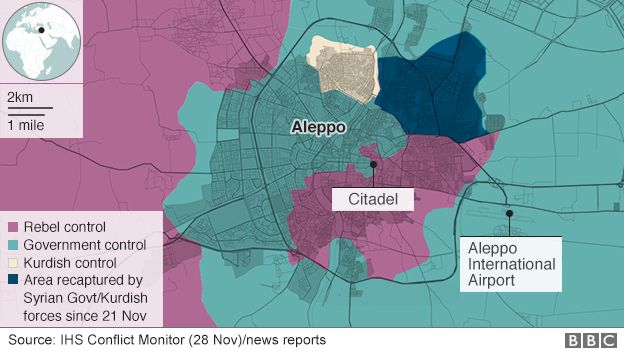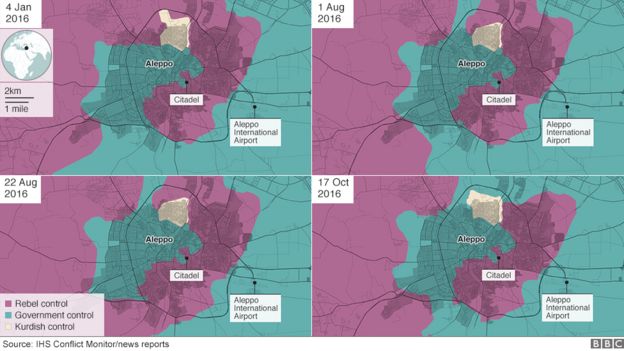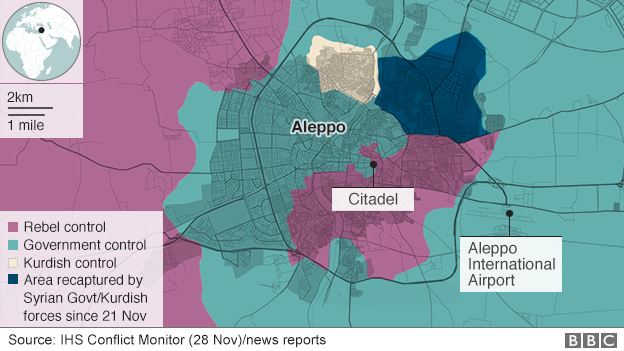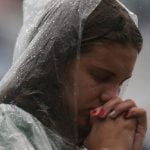Close to two-thirds of rebel-held areas of east Aleppo have now fallen to the Syrian government after another district was seized.
A UK-based monitor said the Tariq al-Bab district fell on Friday, opening up a link between government-held areas and Aleppo’s airport.
Swathes of east Aleppo held by rebels have been seized by government troops and militiamen in the past three weeks.
Some 250,000 people remain trapped in besieged areas of the city.
Tens of thousands of people have been displaced. The United Nations this week said conditions in east Aleppo were now so dire that medical operations were being conducted without anaesthetics.
- What’s happening in Aleppo?
- Read Lyse Doucet’s latest report from Aleppo
- Aleppo may become giant graveyard – UN
- Aleppo situation ‘worse than imaginable’The Syrian Observatory for Human Rights monitoring group said Tariq al-Bab was recaptured more than four years after falling into rebel hands.
Clashes in the district left tens of fighters on both sides killed or injured, it said.

At least 300 people have been killed since the government-led offensive on east Aleppo,
The BBC’s chief international correspondent Lyse Doucet, who is in west Aleppo, said the seizure of Tariq al-Bab meant that 60% of the areas formerly held by rebels was now in government hands.
Heavy shelling of the east continued throughout the night, she said.
Thousands of people fled Tariq al-Bab into neighbouring areas as fighting intensified.
- Girl, 7, tweets photo of lost Aleppo home
- Why is Russia engaged in Aleppo?
- ‘Clown of Aleppo’ killed in air strike
Earlier this week, Stephen O’Brien, the UN’s humanitarian affairs chief, said besieged areas of the city risked becoming “one giant graveyard”.
He said some people inside opposition-controlled areas were so hungry they were reduced to scavenging.
On Thursday, Russia, that supports President Bashar al-Assad’s government, indicated it was ready to discuss opening four safe corridors for humanitarian access.
Aleppo was once Syria’s largest city and its commercial and industrial hub before the uprising against President Bashar al-Assad began in 2011.
It has been divided in roughly two for the past four years. But in the past 11 months, Syrian troops have broken the deadlock with the help of Iranian-backed militias and Russian air strikes.
In early September they reinstated a siege of the east, and launched a large-scale offensive later that month to retake full control of the city.
The Syrian Observatory says more than 300 civilians have been killed in rebel-held districts since the offensive was stepped up in mid-November.

[Source:-BBC]








